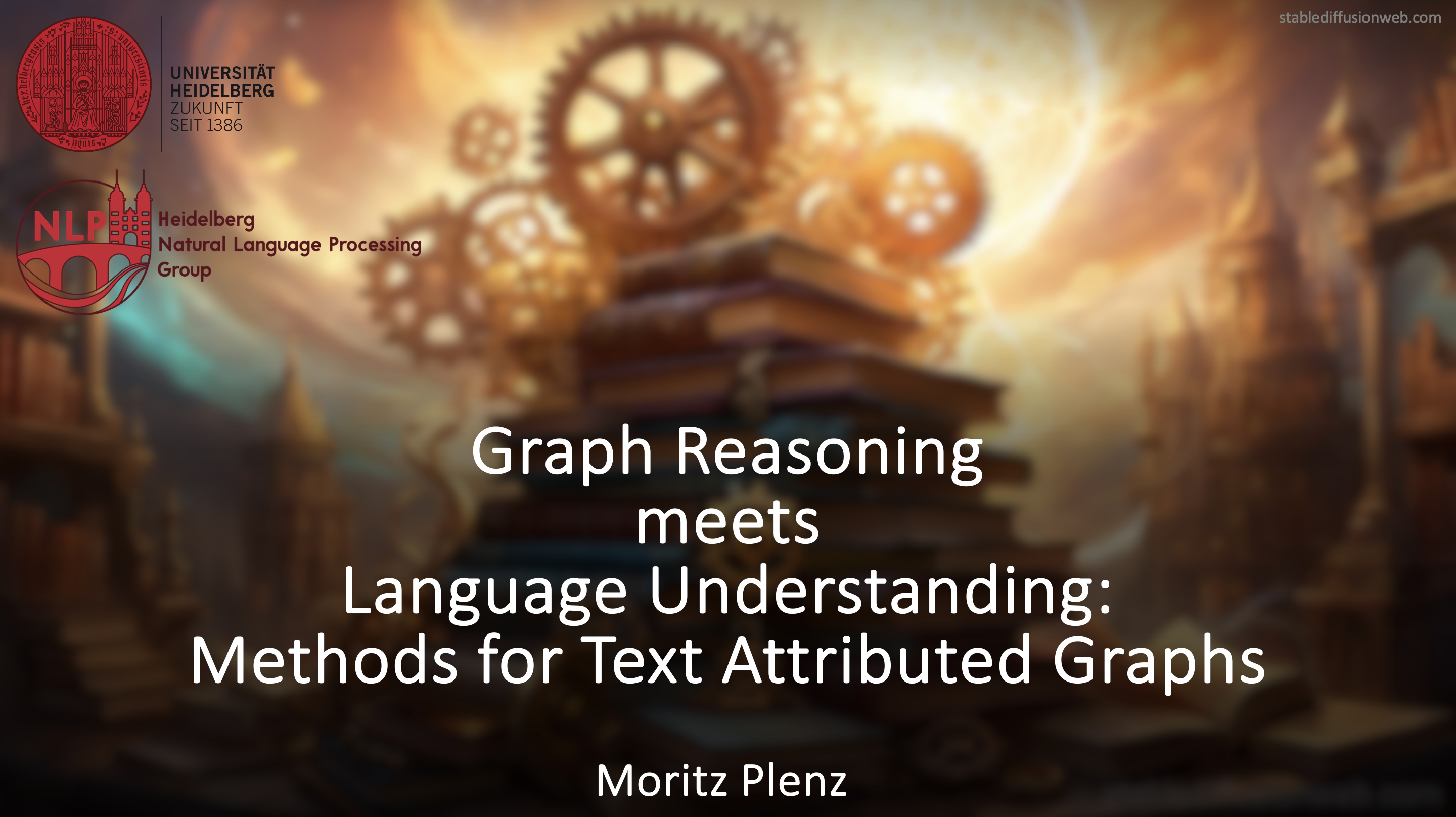Before the end of the year, here comes an update from the HD-NLP group on new publications and recent and upcoming talks:
📜 Recent Papers!
Phillip Richter-Pechanski published his manuscript
Clinical information extraction for lower-resource languages and domains with few-shot learning using pretrained language models and promptingin Natural Language Processing -- the former Journal of Natural Language Engineering!
His work is designed as a guide for clinical NLP engineers on how to address the four main challenges of Medical IE (MIE) projects in the clinical domain, by leveraging pretrained language models, prompting and interpretability techniques, demonstrating the efficiency and prospects of neural pre-trained language models for use in the clinical domain.
Xiyan Fu will present her newest work on compositional generalization evaluation in NLI at EMNLP 2024:
The Mystery of Compositional Generalization in Graph-based Generative Commonsense Reasoning (Findings of EMNLP)She presents a new compositionality challenge that expands on the well-known and challenging CommonGen task (Lin et al. 2020, Findings of EMNLP) which she reframes as a generative reasoning task that challenges the compositional generalization abilities of LLMs in terms of reasoning and guided verbalization, by asking models to combine and verbalize unseen combinations of graph-structured inputs.
🗣️ Recent Talks!
Frederick Riemenschneider recently presented his work on Ancient Language Processing with LLMs in a talk titled
"It's All Greek (and Latin) to Me: Multilingual Language Models and the Challenges of Digital Classics"at the Digital Humanities and Infrastructures: Tools, Archives, and Theory Workshop , held at the IIT Indore Campus.
In his talk, he explored the potential and pitfalls of employing Multilingual Language Models in the realm of Digital Humanities, with particular focus on Ancient Greek and Latin.
Frederick Riemenschneider will soon also give an invited talk at the University of Leuven: He will talk at the Computational Approaches to Ancient Greek and Latin Workshop," His presentation, titled
"Ira ex machina: Multilingual Models and Emotion Analysis in Classical Texts"will explore the potential and challenges of multilingual approaches to Ancient Greek and Latin. He will share recent developments from our RAGE (Roman and Greek Emotions) Project, demonstrating how this research enables scholars to conduct large-scale, fine-grained analysis of emotions in Classical texts.
 Anette Frank was invited to give a talk on
Anette Frank was invited to give a talk on
"Large Language Models and Linguistic Insights”in the Workshop on Large Language Models (LLMs) in Linguistic Theory, on behalf of the Award of an Honorary Doctorate to Annie Zaenen by the University of Konstanz.
Moritz Plenz was invited to present at Roosh Circle's Papers Club, where he delivered an online talk titled
"Graph Reasoning Meets Language Understanding: Methods for Text-Attributed Graphs.”
 The presentation was designed for a broad audience, blending both technical and conceptual elements. It covered the basics of Text-Attributed Graphs (TAGs), the challenges of applying Language Models (LMs) or Graph Neural Networks (GNNs) to TAGs, and how Graph Language Models can address these issues. The recording can be viewed here.
The presentation was designed for a broad audience, blending both technical and conceptual elements. It covered the basics of Text-Attributed Graphs (TAGs), the challenges of applying Language Models (LMs) or Graph Neural Networks (GNNs) to TAGs, and how Graph Language Models can address these issues. The recording can be viewed here.
Fabian Strobel was invited to the 2024 installment of the conference series with the subtitle "From graphemes to knowledge" that took place in October 23rd-25th at the Università Ca’ Foscari in Venice. Together with Isabella Maurizio he talked about the late antiquity text of Hexapla Secunda under the title
“From Graphemes to Phonemes to Graphemes: Using Hexapla Secunda for Reconstruction”.




